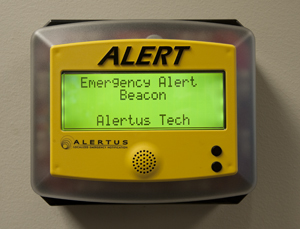Washington University will test its emergency communications system, WUSTLAlerts, at approximately 12:35 p.m. CT Wednesday, Sept. 19.
The test will take place unless there is the potential for severe weather that day or some other emergency is occurring at that time.
For this test, WUSTLAlerts will send e-mails to @wustl.edu addresses and text messages to cell phones.
E-mails will come from WUSTLAlerts@wustl.edu, and text messages will come from 89361.
Please respond as quickly as possible per the instructions, as that will help the university gauge the effectiveness of the system.
Also to be tested Sept. 19 will be the university’s
- Alertus beacons;
- Desktop pop-ups on computers that have the software installed;
- Three outdoor warning sirens on the Danforth Campus;
- Indoor public address systems in the Danforth University Center, Athletic Complex and Olin Library;
- Cable TV override on the Danforth Campus;
- RSS feed to the emergency website; and
- Limited digital signage.
For more information on many of these emergency communications methods, visit news.wustl.edu/news/Pages/23155.aspx.
Washington University also will notify the community of the test via the emergency hotline (935-9000 locally or toll-free 888-234-2863) and emergency website (emergency.wustl.edu).

In the event of an actual emergency, the emergency website and hotline will be updated regularly to provide information to the WUSTL community.
As the school year begins, WUSTL community members are strongly encouraged to enter or update their contact information via HRMS and WebSTAC/SIS.
The university uses the information in HRMS and WebSTAC/SIS to contact individuals when necessary in an emergency.
WUSTL community members who have already updated their contact information but have more than one cell phone or pager number are encouraged to log in and include all numbers in their HRMS or WebSTAC/SIS profile.
“In an emergency, WUSTLAlerts will use the contact information in HRMS and WebSTAC,” says Matt Arthur, director of incident communications solutions. “In preparation for the test, now would be a great time to check and update contact information.”
WUSTL students, faculty and staff also are encouraged to visit emergency.wustl.edu and learn more about how to prepare for and respond to severe weather and other emergencies.
“Having knowledge of what to do or where to go in case of emergencies when at home or at WUSTL is crucial for the safety of the Washington University community,” says Mark Bagby, emergency management coordinator.
For more information about the Sept. 19 drill, email Bagby at bagbym@wustl.edu.